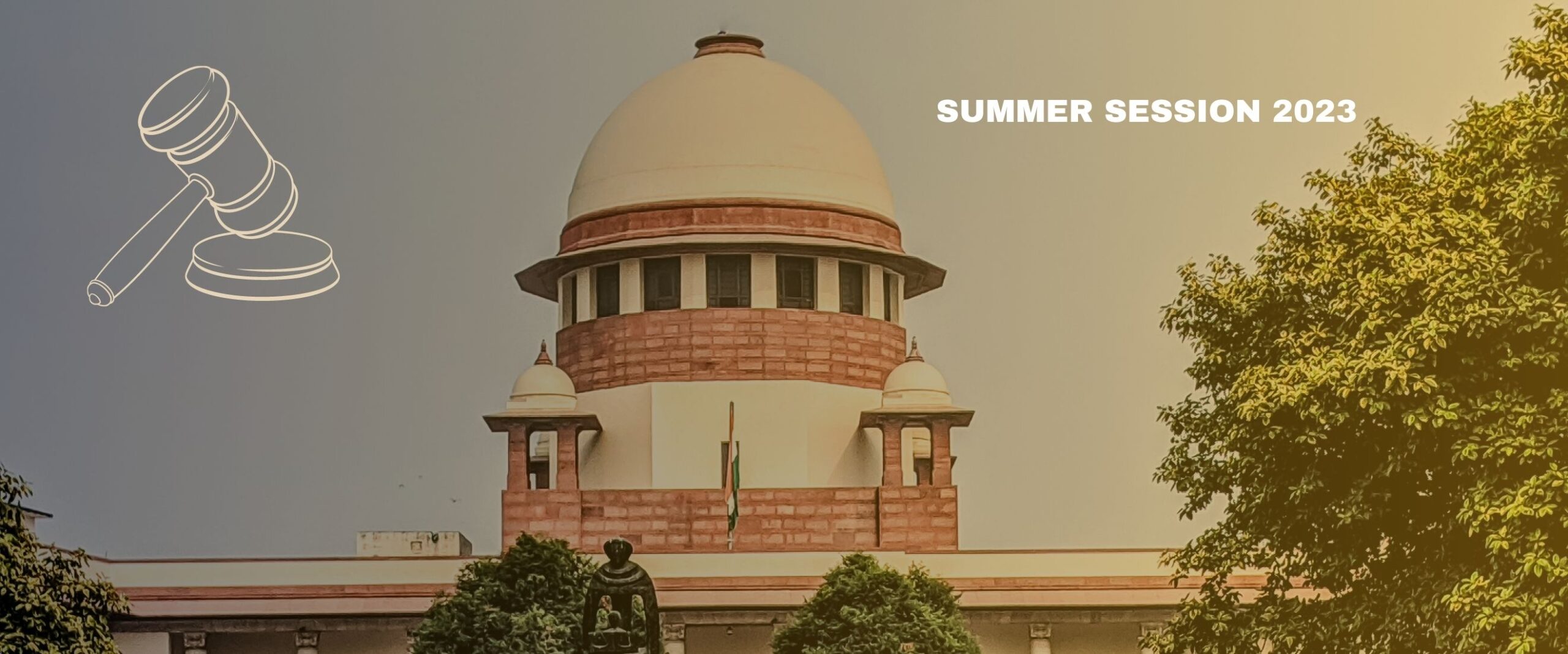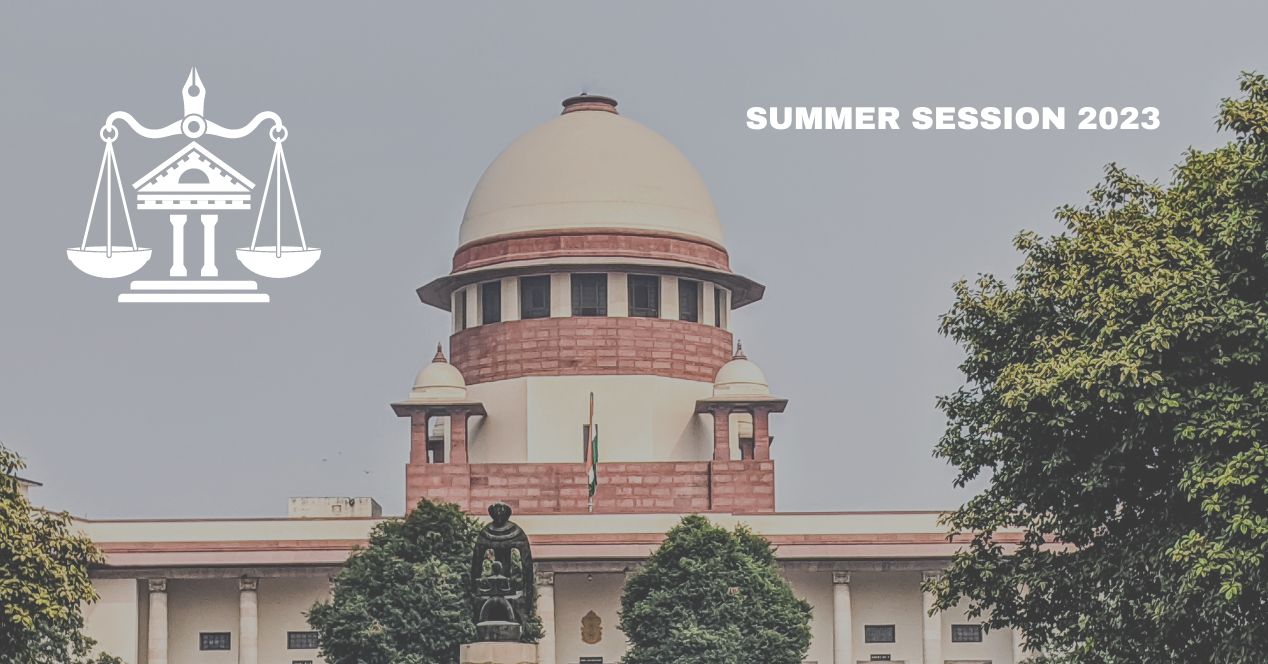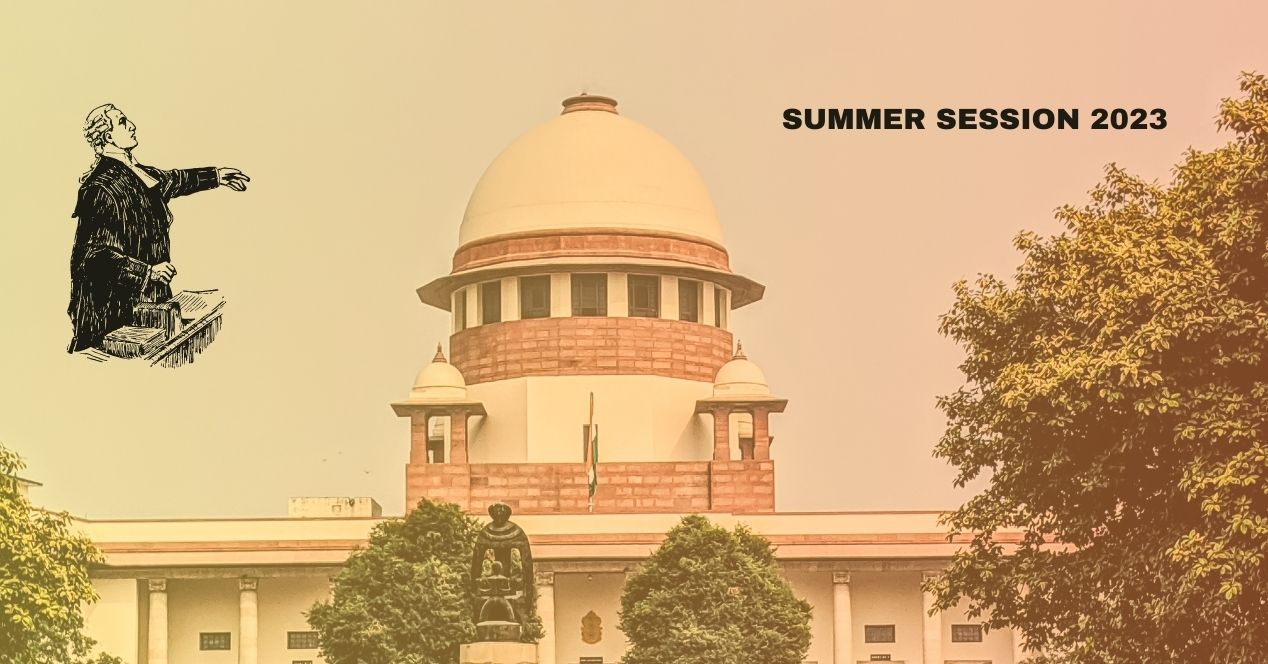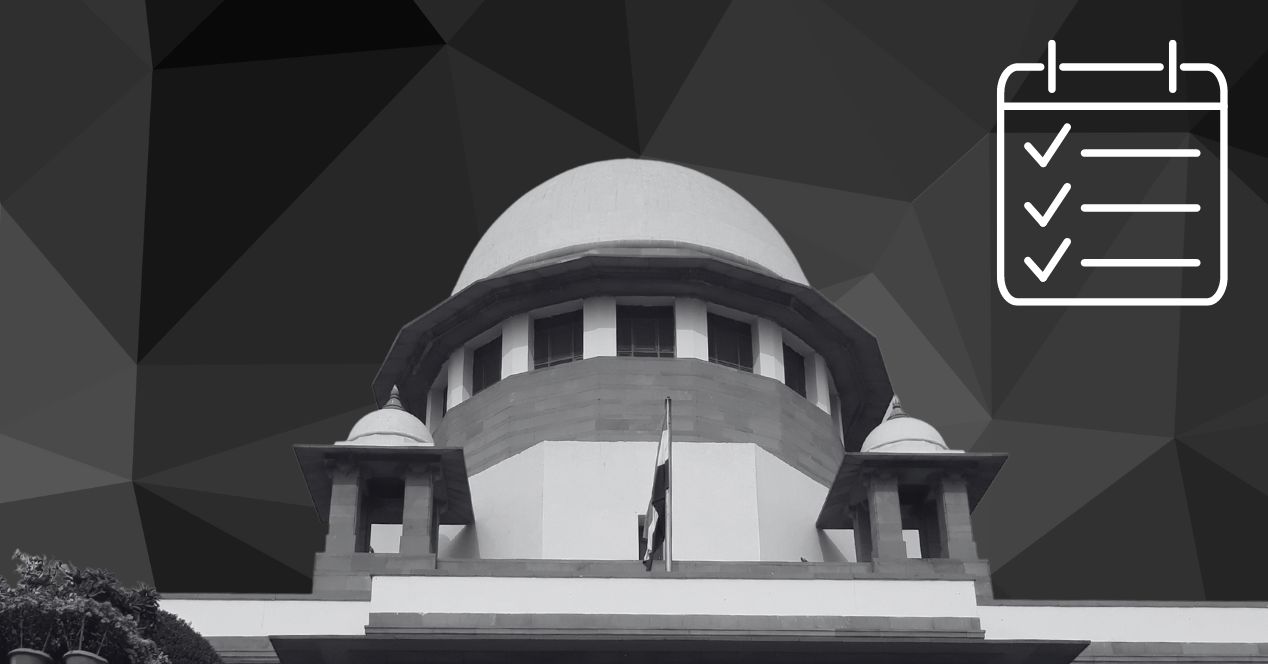Analysis
2023 Summer Session Review: Judgements
With SC on summer vacation, SCO recaps the notable judgements of the summer session of 2023.

The Summer Session (March 13th – May 20th*) saw several key developments at the SC, notably the conclusion of important Constitution Bench cases. SCO’s review of the Summer Session has been divided into 3 Sections: Key Judgements, important hearings, and institutional developments.
The Court delivered 6 Constitution Bench Judgements in this session. We review the key judgments of the Supreme Court’s Summer Session.
Maharashtra Shiv Sena Split
On May 11th, the SC held that the events leading to Mr. Eknath Shinde’s rise to power were illegal. The Court left the disqualification of the rebel Shiv Sena members up to the Speaker of the Maharashtra Legislative Assembly.
The SC came down heavily on Governor B.S. Koshyari for ordering a floor test based on intra-party disputes when any loss of trust in the ruling party must have been dealt with by the legislature. The Bench also upheld the Election Commission of India’s (ECI) power to decide the outcome of political party splits but held that the ECI’s decision would only have a prospective effect.
Though legally sound, the Judgement was widely viewed to be toothless for having no real impact on Maharastra’s politics. The SC could not reinstate Mr. Uddhav Thackeray as Chief Minister, as his resignation was voluntary. With Mr. Eknath Shinde having enjoyed the post of the CM for nearly a year, and disqualification proceedings nowhere in sight, the Judgment has hardly changed things on the ground.
Accountability of Civil Services in the NCT of Delhi
The second Constitution Bench case over the tussle between the Union and the National Capital Territory (NCT) of Delhi’s government concluded on May 11th. The Bench upheld the federal structure envisioned for the NCT under Art. 239AA of the Constitution and ruled that the NCT government must have control over its civil servants. The Bench also reiterated the restrictions on the Lieutenant Governor’s (LG) discretionary powers over the NCT but affirmed Parliament’s legislative powers to overrule the NCT government.
The Delhi government’s win at the SC proved to be short-lived, however, as the Union nullified the SC’s judgement through an Ordinance. This returned the control of ‘services’ to the Union and granted the LG ‘sole discretionary’ power over the appointment of civil servants in the NCT of Delhi.
Challenge to the Practice of Jallikattu
On May 18th, 2023, a 5-Judge bench unanimously upheld the practice of Jallikattu, Kambala, and Bailgada Sharyat. The practices were previously banned in Animal Welfare Board of India v. A. Nagaraja (2014). The petitions were against the Tamil Nadu, Karnataka, and Maharashtra amendments which allowed the practice after the 2014 precedent. The Bench held that the 2017 Tamil Nadu Rules had created precautions to ‘substantially minimise’ any cruelty faced by the animals. Additionally, they refused to ‘disrupt’ the Tamil Nadu government’s recognition of Jallikattu as a cultural practice. Lastly, they avoided extending fundamental rights to animals as they did not want to venture into ‘judicial adventurism’.
Animal Rights activists have viewed this judgement as a significant setback in securing basic rights against cruelty to animals.
SC’s Power to Grant Divorce Under Article 142
On May 1st, 2023, a Constitution Bench led by Justice S.K. Kaul unanimously held that the Supreme Court has the power to directly grant divorce under Article 142 of the Constitution.
Article 142 of the Indian Constitution broadly enables the Supreme Court to issue or pass any order that it feels is necessary to achieve the ‘ends of justice’. Section 13B of the Hindu Marriage Act, 1955 provides the procedure for divorce by mutual consent. It consists of a mandatory 6 month waiting period before the divorce is granted.
According to the Bench, Article 142 allows the Supreme Court to waive off the waiting period if the marriage is ‘irretrievably broken down’ to ensure ‘complete justice’. However, the Court cautioned that powers under Article 142 should be applied only under special circumstances.
Additional Compensation for Bhopal Gas Tragedy Victims
On March 14th, 2023, a Constitution Bench unanimously dismissed the Union government’s plea to increase the compensation awarded to the 1984 Bhopal Gas Tragedy victims. The Union had initially filed a Curative Petition to increase the compensation in 2010, which was referred to the Constitution Bench. The Bench found that the Union’s arguments lacked any legal basis to justify an increase in the granted compensation. Justice Kaul observed that there was a significant surplus remaining from the previously granted compensation. The Union was ordered to use that remaining surplus amount to address any future claims from the Bhopal Gas Tragedy victims.
Validity Unstamped Arbitration Agreement
On April 25th, a Justice K.M. Joseph-led Constitution Bench, by a 3:2 split, ruled that unstamped arbitration agreements are not enforceable until the stamp duty is paid. Justices K.M. Joseph, Aniruddha Bose, and C.T. Ravikumar (concurring) were in the majority. Justices Ajay Rastogi and Hrishikesh Roy dissented. The majority ruled that per the Indian contract law and Garware Wall Ropes (2019), Courts will be unable to recognise the validity of arbitration agreements if the stamp duty is unpaid. The SC reasoned that it can refer parties to arbitration only after it receives a ‘certified copy’ of the arbitration agreement, which requires stamp duty to be paid.
The dissenting judges cautioned against the majority decision and raised concerns over frustrating the purpose of arbitration. They suggested that the arbitrator of the proceedings must decide issues regarding stamp duty in order to avoid stalling the proceedings through judicial intervention.
MediaOne Broadcast Ban
On April 5th, the SC quashed the broadcast ban placed on MediaOne TV by the Ministry of Information and Broadcasting (MIB). The MIB cited security concerns over the channel’s connection to Jamaat-e-Islami Hind (JEIH). However, they submitted these concerns to the Court in a ‘sealed cover’. Sealed cover submissions are not revealed to the public or even the opposite parties to the case.
Without revealing the contents of the sealed cover, the CJI D.Y. Chandrachud-led Bench ruled that there was insufficient evidence to support the ban. Notably, the Bench also criticised the use of sealed covers stating that the practice ‘rendered the rights of the petitioner as a dry parchment’.
*The SC does not officially follow a session calendar. Nevertheless, for the sake of analysing performance, SCO has divided the annual calendar into 4 seasonal sessions. The Summer Session begins at the end of the SC’s Holi break and concludes at the onset of the summer break.




